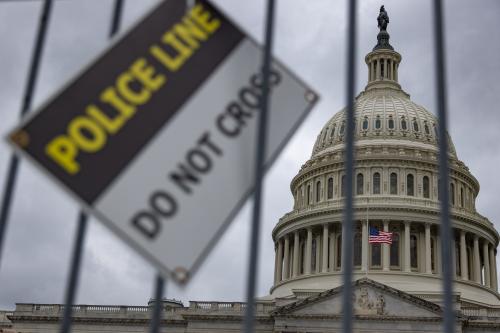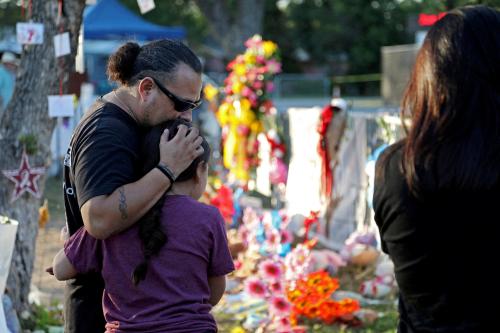Benjamin Wittes joins Josh Patashnik of The New Republic and Andrew McCarthy of the Center for Law and Counterterrorism at the Foundation for Defense of Democracies to discuss recent legal developments in the war on terror.
TNR: I want to get your reactions to this week’s decision from the D.C. Circuit Court of Appeals in the Parhat case. The court rejected the administration’s rationale for detaining Mr. Parhat, who is a Uighur, a Chinese Muslim, at Guantánamo, finding no evidence that would qualify him as an enemy combatant.
Benjamin Wittes: Well, actually, what the D.C. Circuit did is very close to the vision of judicial review that I outline in my book, which is to say, being serious on holding the executive branch to statutorily defined guidelines for detentions, but not a playing a role in designing the legal architecture in the area. Now, on the merits of the case, I think the administration never should have identified these Uighurs as enemy combatants. These are people whom the administration has not argued are fighting against us. So, I think this is an example of what happens when you don’t design your policies well.
Andrew McCarthy: I agree with Ben that it was foolish, at least at a certain point, to have these Uighurs lumped into the same system and into the same category as Khalid Sheikh Mohammed or others who are much less ambiguous cases of enemy combatants. But I don’t think it’s as clear-cut as Ben suggests. These guys, and Parhat included, were actually training in a camp that had very close al-Qaeda connections and may have actually been administered by al-Qaeda. But I do think a new category should have been created for them, because I would have thought the last thing the administration and the military would want would be to litigate what an enemy combatant is on facts like this.
TNR: Andy, you wrote a favorable review (sub. req’d) of Ben’s book, even though Ben thinks the administration’s narrow-minded focus on executive power got in the way of creating a legal architecture for the war on terror. Do you find that criticism of the administration valid?
Andrew: Look, I believe the policies the administration adopted post-9/11 were better for national security than the ones we had pre-9/11. But that said, I do think that, and I’ve said this going back to 2003 or 2004, that at a certain point, when using the military system of detentions is obviously not working, and thoughtful people who want to support the policy realize that it’s not a good fit, I think their energy would have been much better directed at trying to come up with a system that would be comprehensive and permanent and legitimate, rather than letting it get caught up in the politics of executive power.
TNR: Ben, do you think that’s right? One of the messages I got from reading your book is that in many ways the procedures that are in place now have been demonized and aren’t as brutally ineffective as is often portrayed.
Ben: I really believe that neither the criminal law nor the law of war gets close enough to addressing our core long-term problems. In the short term, the Bush administration after 9/11 had absolutely no choice but to invoke the laws of war, and the reason frankly is that we wanted to start bombing Afghanistan, and we wanted to use U.S. military force to overthrow a foreign government–and there really are no legal tools to do that other than to invoke war powers. But in the long run, the consequence of relying on the wartime model of detention is that you cast this huge legal cloud over everything that you do, and it becomes very difficult to shake. The central argument of my book is that it was a mistake not to go to Congress and build a legal architecture that could sustain this for the long term much earlier, and every day we don’t work on it, it’s a bigger mistake.
Read and listen to the full interview »
The Brookings Institution is committed to quality, independence, and impact.
We are supported by a diverse array of funders. In line with our values and policies, each Brookings publication represents the sole views of its author(s).



Commentary
The Future of Justice in the Age of Terror
July 3, 2008